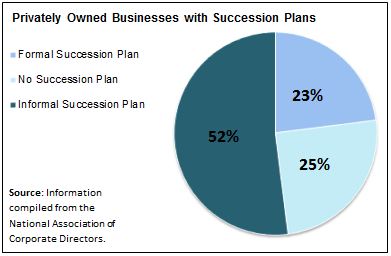Case Study on 401k and ERISA Regulations
January 27, 2014Millennial Generation: Part 1
March 20, 2014Creating Value, a Culture and a Legacy
Strong leadership sets the tone for a company in both culture and legacy.
All business owners hope to increase their companies’ monetary value. But forward thinking leaders also want to build a positive corporate culture and develop a top notch leadership team. Planning for the smooth transition of the business in the future can only enhance company value.
Making sure your organization has a strong and positive culture, good infrastructure, and talented people in key positions will allow future challenges to be met with confidence.
A long-term succession planning program to identify, groom and mentor future leaders enables current executives to develop deeper relationships with the next generation and strengthen the organization from within, giving the business a strong foundation. Succession planning should include the identification of future needs, personal goal-setting to identify human potential, professional development to foster internal capabilities, and mentoring to support all of these processes. Without this sort of development, the unexpected loss of leadership in an organization may put the company’s survival in jeopardy.
Succession Planning Facts
 Among family owned businesses, only one third survive into the second generation, 12 percent into a third and a mere 3 percent into a fourth generation. Often this is due to a lack of succession planning; the poorly handled transition of a business can cause substantial loss in a company’s value.
Among family owned businesses, only one third survive into the second generation, 12 percent into a third and a mere 3 percent into a fourth generation. Often this is due to a lack of succession planning; the poorly handled transition of a business can cause substantial loss in a company’s value.
The National Association of Corporate Directors reports that fewer than 25 percent of privately owned businesses have a formal succession plan.1 Here are a few reasons why leaders don’t have succession plans:
- They have a scarcity mentality vs. abundance.
- They’re too focused on day-to-day operations.
- The process seems too complicated.
- There is no perceived immediate value.
- They don’t know how to begin the process of choosing the right successors and management team.
- They don’t want to talk about their financial and personal matters.
Owners and executives are busy managing their companies, developing sales opportunities and fending off competitors. However, without a succession plan, you lose control over the outcome of the business after your departure, decreasing chances for your company’s survival. Failure to plan diminishes the intrinsic value of a business.
![]()

